InterviewsLooking Sideways: The Matt Barr Interview
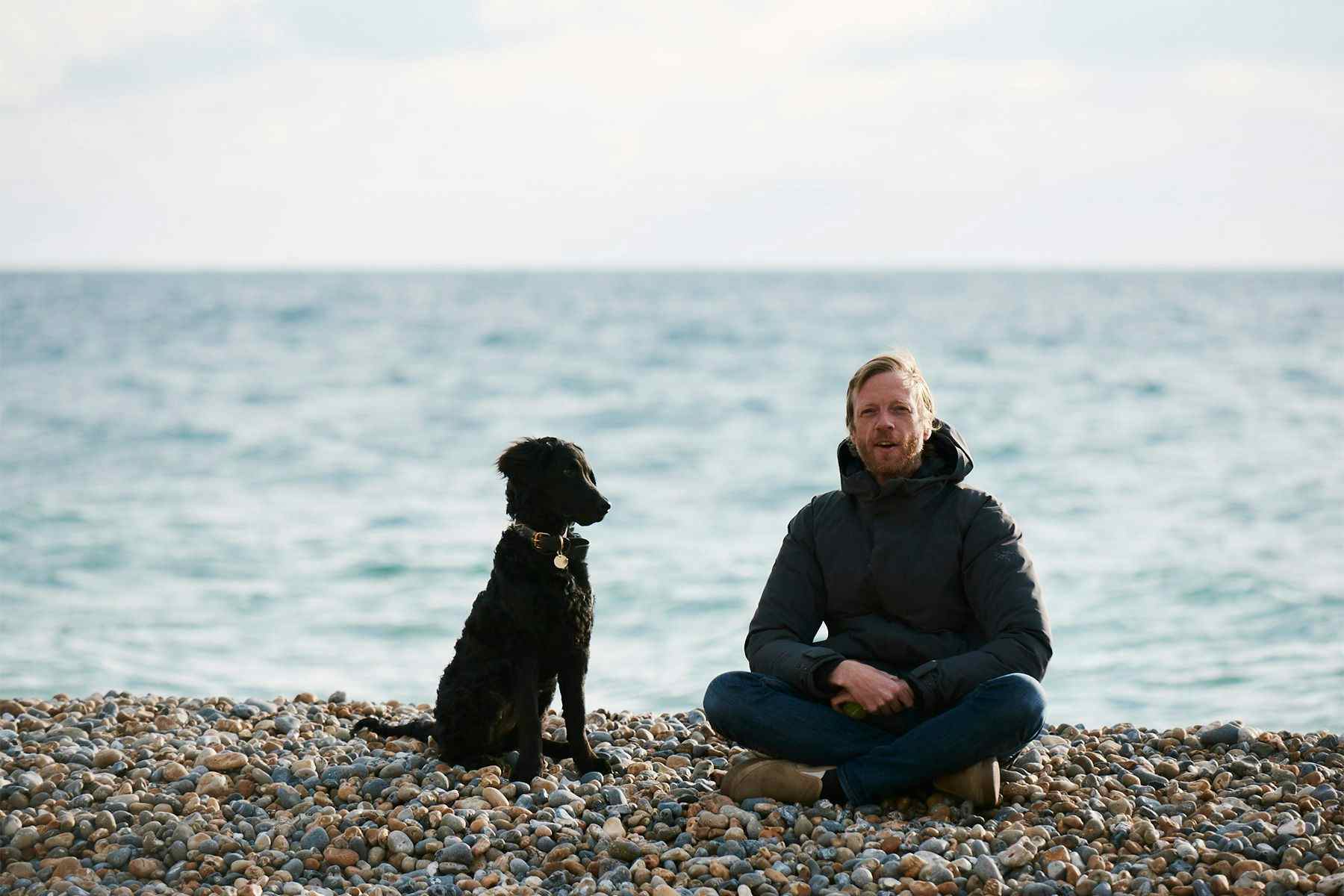
The power of storytelling lies in the dichotomy of its effects: stories set us apart as individuals, yet bring us together as humans. Having been a core component of human culture since the dawn of times, it is only natural that factors like modern technology and globalization have transformed both the way in which we perceive stories and the mediums through which we share them.
Since their introduction in 2004, podcasts (a medium that Surf Simply is so fond of, we have our own!) have become an increasingly popular vehicle for broadcasting all manner of narratives in all sorts of formats and styles. Podcasts are a kind of ultra-radio, unrestricted by time, and that fit in the pocket. Nonetheless, its fundamental purpose remains the same as that of its predecessor’s – to tell human stories; to perpetuate culture.
In a coalescence of curiosity for all-things-human and all-things-action-sports, journalist and board riding aficionado Matt Barr kick-started Looking Sideways – an interview podcast “covering the most interesting stories in action sports and other related endeavors”.
When it comes to the surf world, Matt has poked into the lives of a wide gamut of personalities: from wave-come-word whiz Jamie Brisick to Finisterre’s founder Tom Kay, no-introduction-needed Mick Fanning, Irish surfer and farmer Fergal Smith, surfer-activist-model-writer Sophie Heller, an all-time legend Rob Machado, among others.
Surf Simply exchanged emails with Matt to find out about his first steps into podcasting, rapport-building, where action sports intersect, and not taking surfing so seriously.
Can you briefly run us through how you turned a passion/interest/ addiction for action sports into a profession?
I guess it’s a combination of right place/right time, and chasing the opportunity that came along early on. I got into skating when I was a kid in the early 90s, then snowboarding soon after that. In the mid-90s I was asked to write a couple of stories for two main UK snowboarding magazines. They liked them, so I was asked to do more, and it went from there really. It became a ‘job’ in around 1997 when my friend Chris and I persuaded the guys at Whitelines snowboarding magazine to hire us as their roving editors-at-large. In the end, I stayed with WL until 2005. Looking back, I was incredibly lucky to get such an opportunity – I spent 8 years working with my best friends, traveling the world snowboarding, and making the best magazine we could. The best of times, basically. While that was going on I also freelanced for other newspapers and magazines about action sports and from there it developed into a ‘career’, although obviously there was never any master plan. At the time, I was just interested in finding a way of going snowboarding and then surfing as much as possible. I still am, if I’m honest.
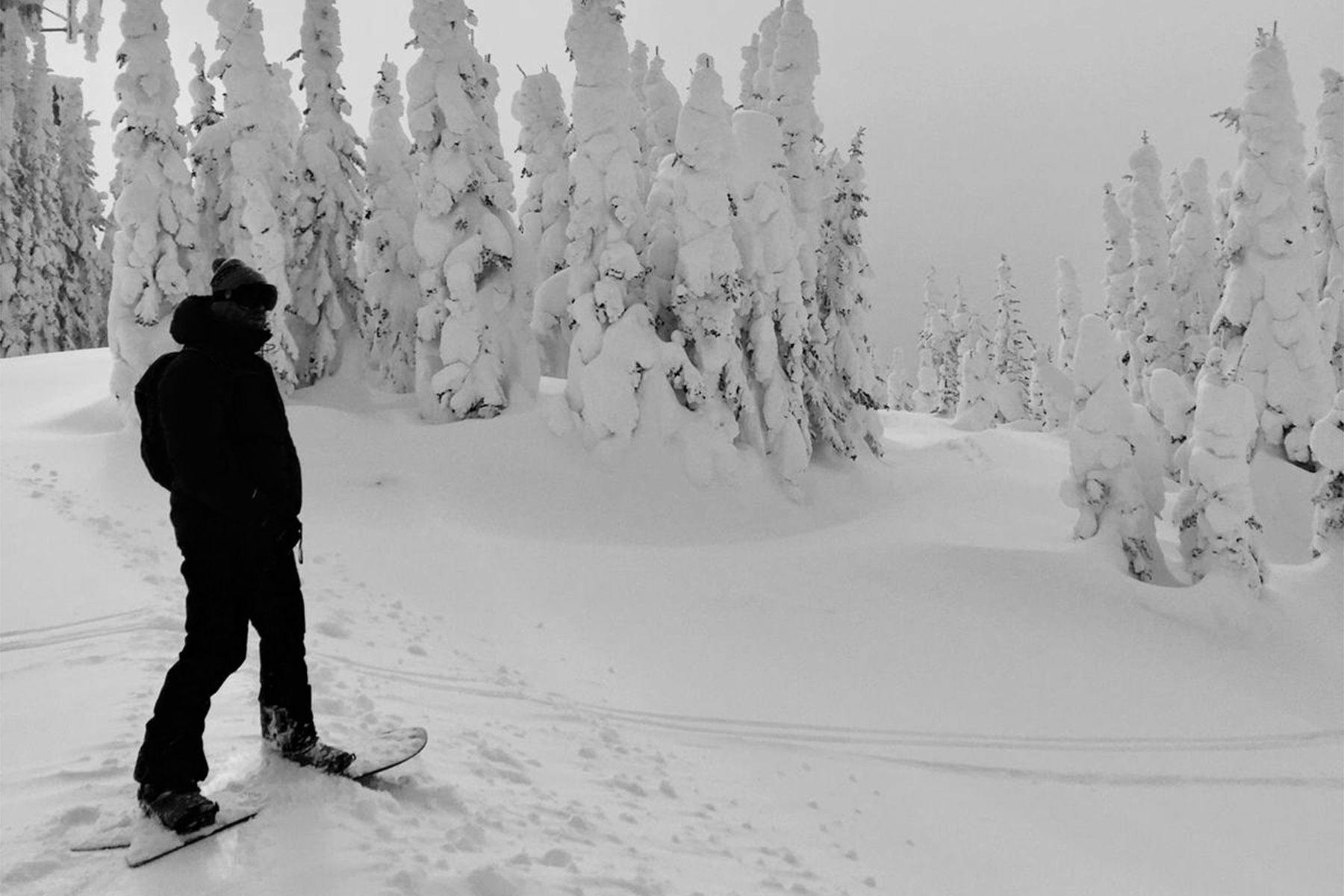
Speaking of surfing, when did it come into your life? And as someone who didn’t grow up riding waves, what does surfing represent to you?
I started surfing seriously in my early twenties, at the end of the 90s. What does it mean to me? Today it’s my favourite thing to do, despite the fact I’m still basically shit at it, which I guess is inevitable when you start as late as I did. I also love the fact that I have a lifetime of progression ahead, and that what I learn while surfing influences the way I snowboard. The whole experience of board riding seems to get richer the older I get, which is a really lovely thing.
Taking from the interviews in the podcast, you seem to have your bearings in the surfing world as much as you do in snowboarding or any other action sports for that matter. How much of that is research and how much of is first-hand experience?
Bit of both really. I’m a geek for this stuff, basically. Always have been.
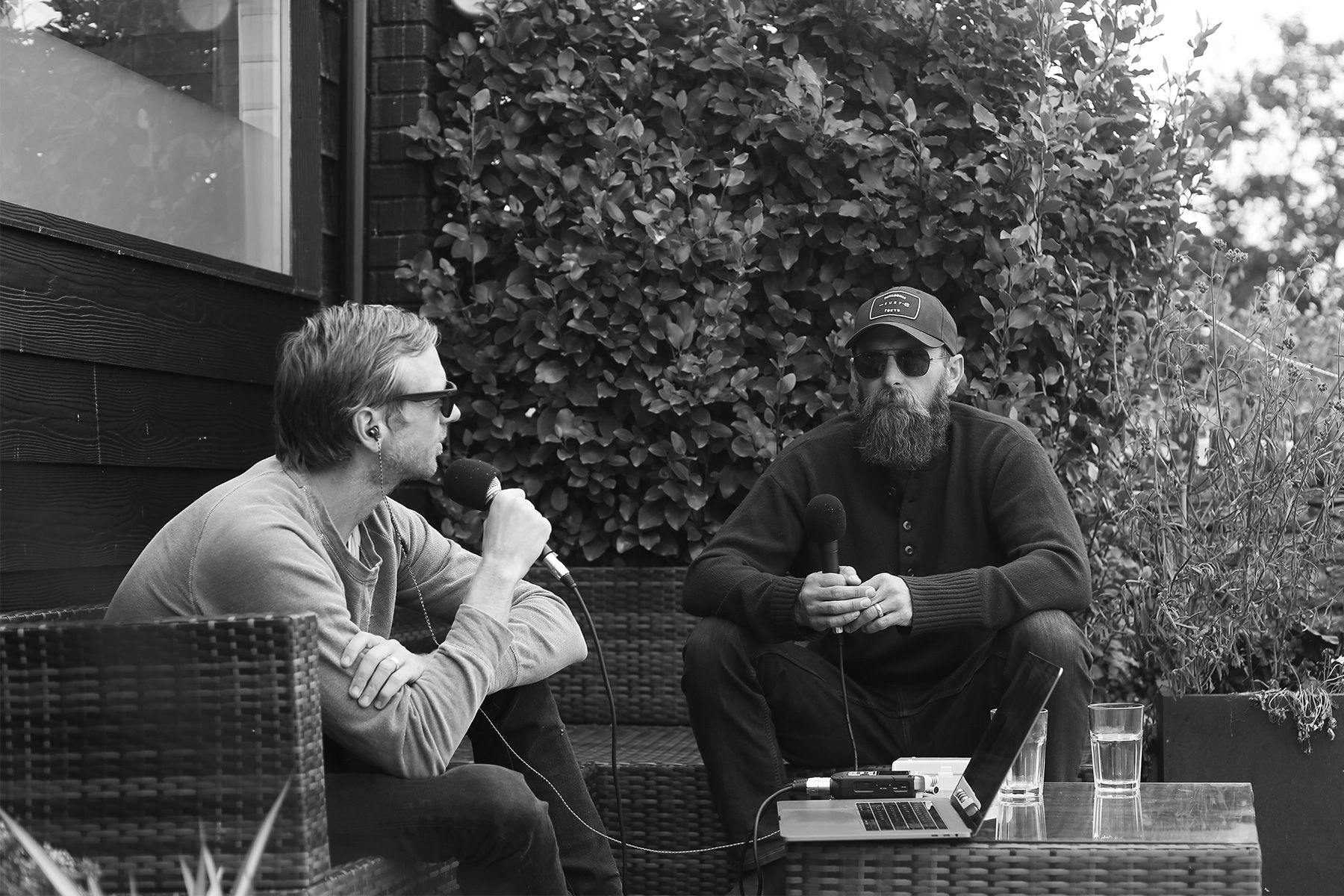
In your opinion, what are some more subtle ways in which action sports/cultures intersect?
For me personally, the actual experience of riding a skateboard, surfboard or snowboard intersect and have an influence on each other, which is something I appreciate more with each passing year. In a wider sense, there are emotional ways the cultures intersect, as the themes that have been developing over the lifetime of the podcast demonstrate. Risk, fear, progression, self-doubt – action sports cultures appear to be a great lens through which to examine and explore these universal human feelings.
How did you decide to begin interviewing people from various different action sports background and recording a podcast?
I just thought it was a good idea. It’s only as it’s developed that I’ve realized what it’s actually about, which has obviously been a hugely gratifying and enjoyable experience. But yeah, I just thought it was strange that nobody else was doing it in the way I wanted to. So I decided to do it myself.
Perhaps I’m wrong but I’ve noticed a sort of pattern in the Looking Sideways episodes I have listened to in that you keep an easy, conversational tone – pub chat style – without shying away from the depths of the interviewee’s story. Is this “personality” something that you approached consciously?
Not at all. To be honest I wasn’t even aware that I had an interview ‘style’ until people started making reference to it as the podcast became more popular. But I think it comes from having interviewed a lot of action sports athletes as a journalist over the years.
When I interview somebody I want to win their trust so I can earn the right to ask the probing questions that will actually result in an interesting conversation. The vast majority of interviews you see, read or hear tend to be anodyne, reductive, dull and often ill-informed. So people respond accordingly. I’ve found if you treat people like adults and provide reassurance that you understand their passion, they tend to respond positively and are happy to open up.
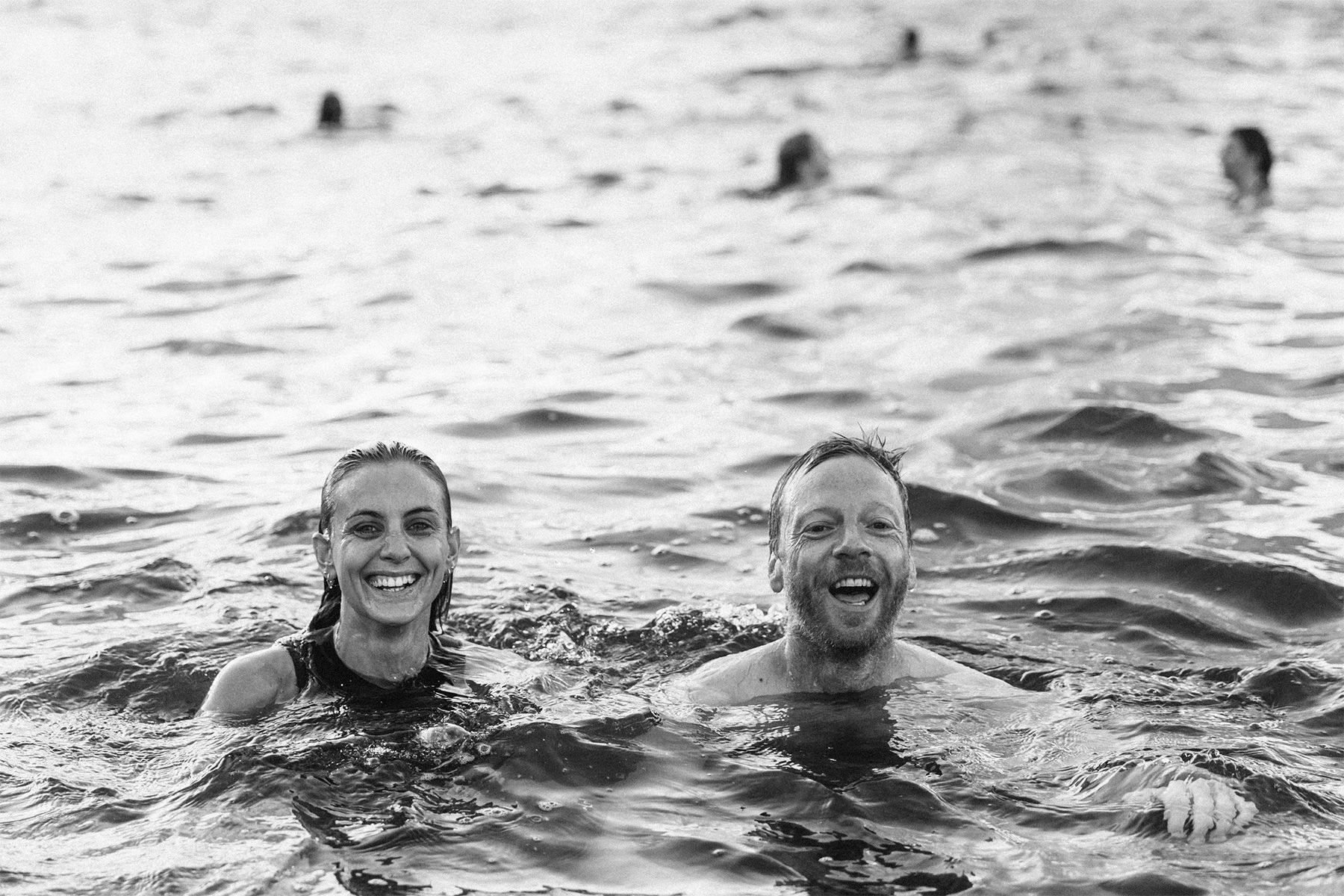
Where does the name “Looking Sideways” come from?
A good friend of mine, Owen Tozer, came up with it. He also came up with the branding and logo. It seemed like a really nice metaphor for what I was trying to do.
Although it may be difficult to pinpoint a “favorite” among all the intriguing characters you’ve interviewed, was there anyone who surprised you somehow – or whose story perhaps resonated with you in a remarkable way?
A recent one that stands out was my conversation with Irish bodyboarder Shambles McGoldrick. I spent three days with him in Strandhill in Sligo and he was the most generous host and a genuinely lovely, humble individual. He also had a brilliant story as well.
A perennially popular one is an early episode with snowboarder Sascha Hamm. He has had two death-defying accidents in recent years, yet is unapologetic in his approach to risk. That attitude shocked and even angered a lot of listeners.
What are some things you learned about yourself in this past couple of years with Looking Sideways?
That I subtly alter my voice depending on who I’m talking to, which was an intriguing and slightly horrifying realization. I’ve since realized that everybody does it, and if they don’t then it’s a good indication that you’re probably talking to a sociopath. I think it’s a way of trying to establish an empathetic rapport with somebody that is probably hard-wired into us on some basic primordial level, like unconsciously mimicking body language. It is quite unsettling to be faced with the aural evidence each week though.
Some things you learned about people in general?
Imposter syndrome seems to be pretty universal. Some people just seem to be better at blocking it out than others, and they are the ones that get close to achieving their ambitions or living life on their own terms.
Some things you learned about surfing?
I didn’t learn this from the podcast, but one thing that never ceases to amaze me about surfing is how seriously some people take it.
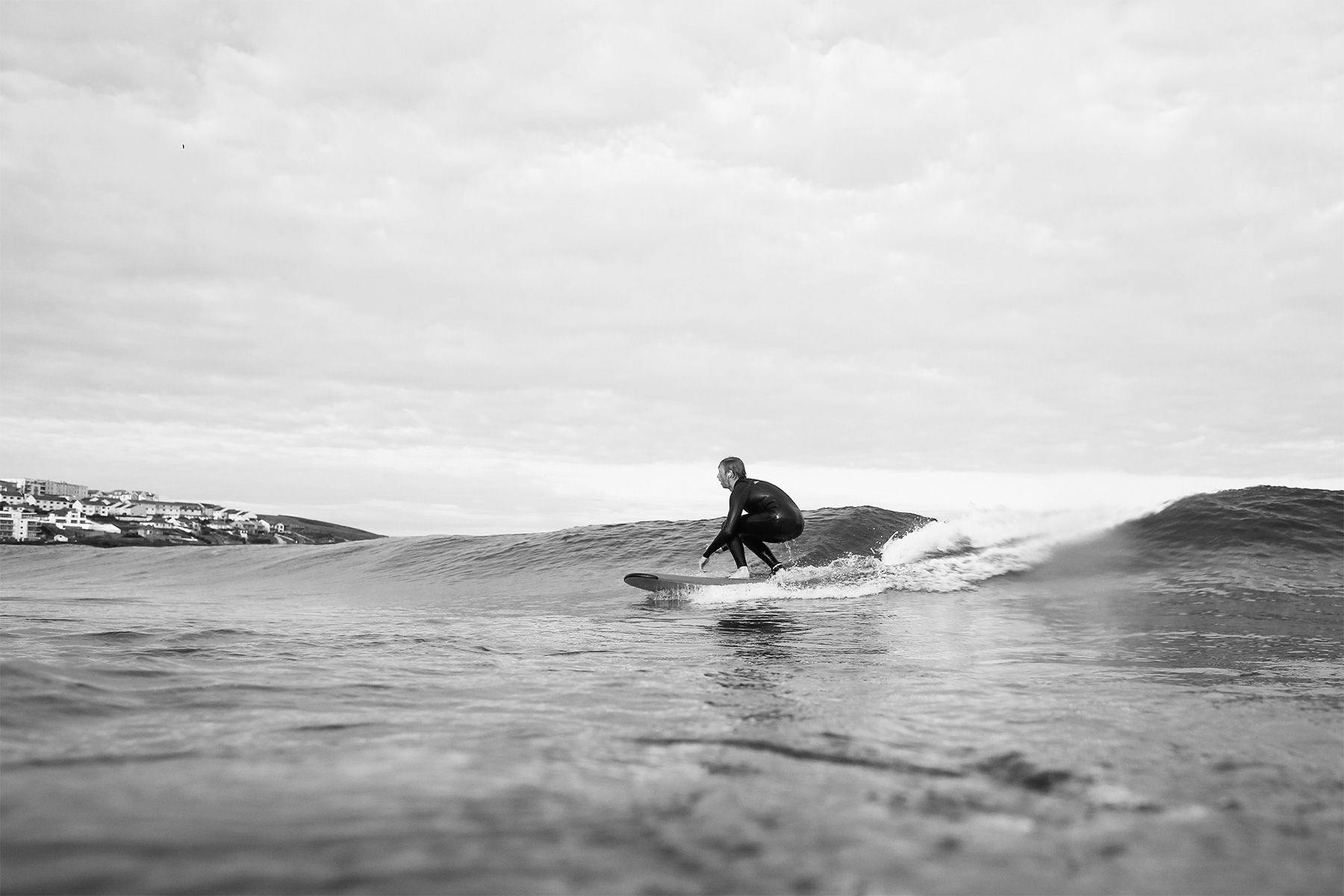
Let’s get a bit more technical: What is your process before/during/after interviewing someone for the podcast?
I usually do about an hour’s research, jot down themes that are worth exploring, and make note of the obvious milestones. Then, while I’m setting up my equipment, I usually tell guests that the idea is to have a fairly loose conversation that can go in any direction they choose. Once we’re chatting, I let their answers dictate the direction of the conversation. Usually, I am following two trains of thought at once – the actual external conversation with the guest; and my own internal dialogue that is helping me decide what to ask next, how that can help me explore the themes I noted earlier, and making a mental note of any new themes I hadn’t thought of. If I’m hungover, that can get a little bit stressful to be honest.
I think it was on the credits of the Rob Machado interview you made a brief mention about the rudiment of your recording equipment. What gear do you currently use to record the interviews? Has it ever been a hindrance?
I use a Zoom H4N recorder and two SM 58 mics. Yeah, it has been a hindrance actually – when I was interviewing Garrett McNamara, who is quite an intimidating individual, the SD card on the Zoom recorder failed right at the start of the interview. I quickly and surreptitiously opened Garageband on my mac and recorded the whole thing through the built-in mic and carried on with the interview, praying the whole time that the thing was recording OK. Garrett didn’t notice and the thing turned out fine in the end.
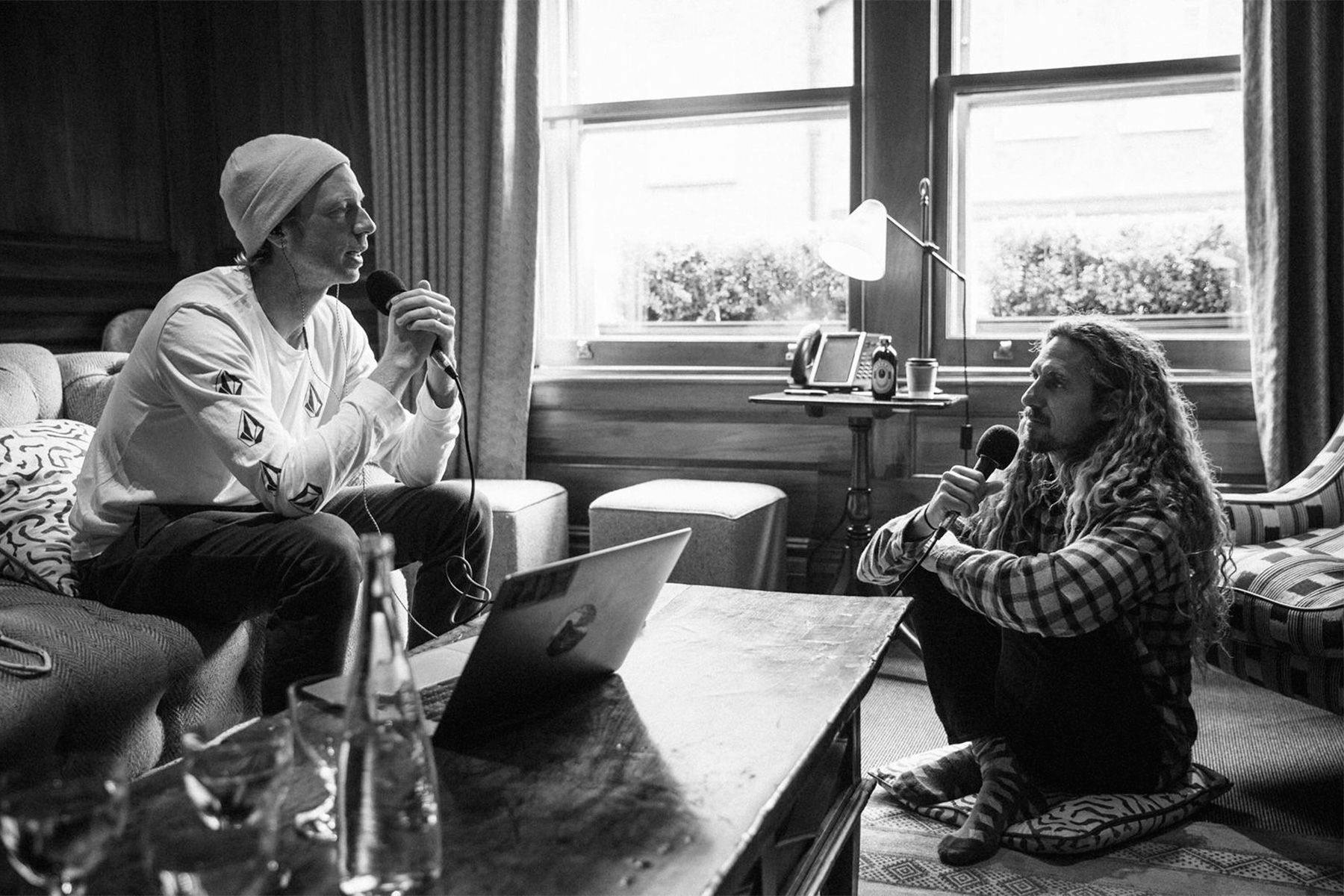
You have been recording interviews for over two decades through your work as a journalist, but the spoken word would eventually become the written word. In this context, how do you approach a podcast interview differently than you would for a magazine?
When you’re working as a journalist you are necessarily adopting a specific tone, which as every self-aggrandising hack knows, can be frustrating. Whereas with this, I can totally please myself. That’s the main difference.
Along the lines of comparison, what do you think podcasting has that other mediums don’t?
A soothing background quality? Haha. I think they make big ideas more palatable.
As a podcaster, if you had a magic wand to change or implement something, what would it be?
I’d make a rule that every time you advertise a product, you have to personally take delivery of one of those products and provide photographic evidence each week.
The most cliché question out there that nonetheless has to be asked: If you could sit down for a chat with any surf personality, dead or alive, who would it be and what would you ask him/her?
Duke Kahanamoku. I’d ask him for his take on surf localism.
Have you got any surf-related interviews lined-up?
I’ve been chatting to Tom Lowe for a while about getting him on, so I’m looking forward to finally pinning him down. I’m also heading to California in the spring and am going to interview Craig Peterson and Kevin Naughton. I’m really looking forward to that. Closer to home, I want to interview Dr. Tony Butt, a British oceanographer and big wave legend.
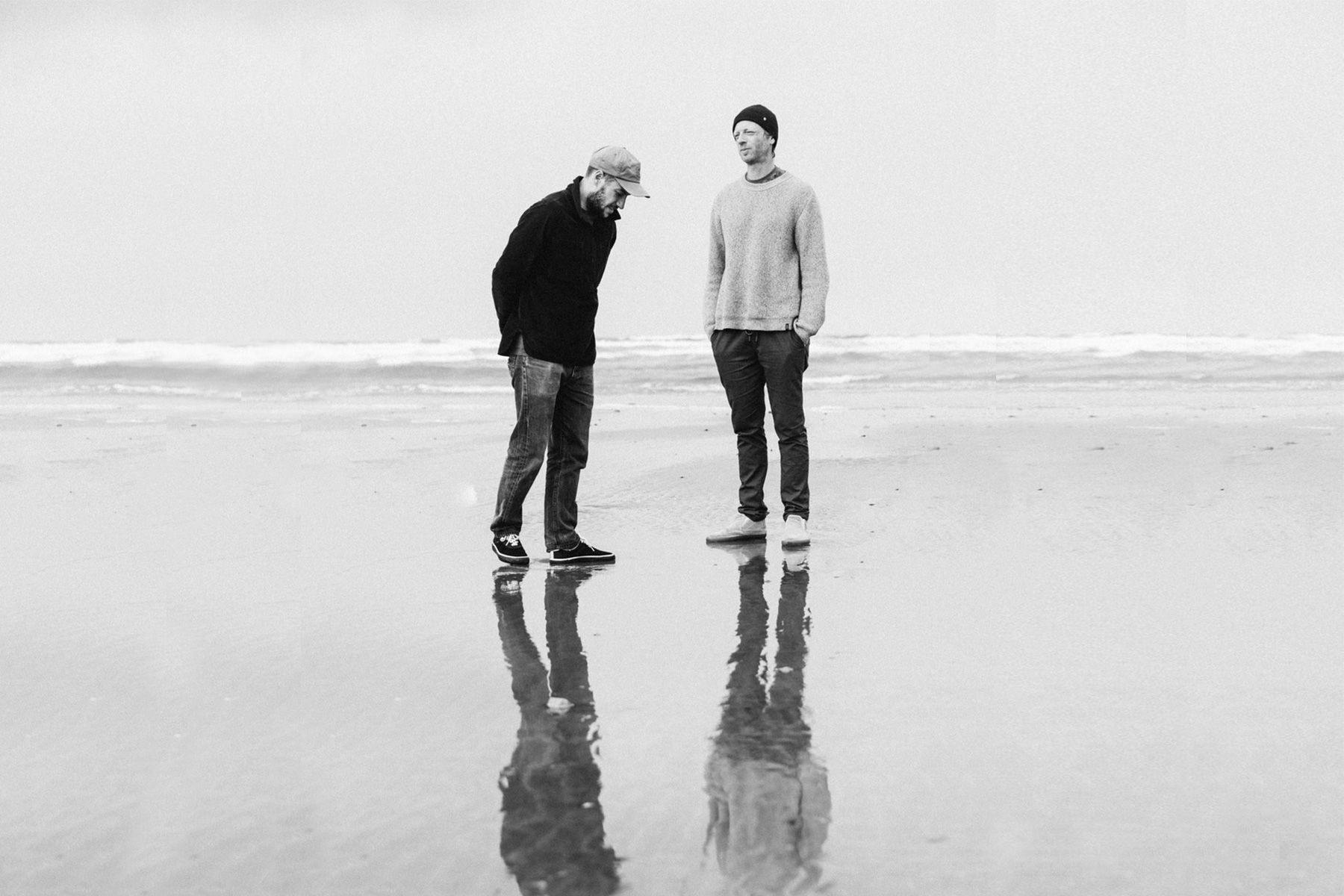
Besides your passion and curiosity, what motivates you to keep producing the podcast? And can you relate this motivation(s) to your motivation(s) for improving in surfing and snowboarding?
It’s nothing more complicated than the fact that I’m really enjoying it. It’s a lot of work but there’s something totally satisfying about having an idea, following it through to the best of my ability and people responding really positively to it. Like surfing and snowboarding, documenting these stories is shaping up to be a life’s work. I mean the list of guests and things to talk about is endless.
A sunny day, clean waves, and a beach barbecue or the same sunny day, fresh powder, and a jacuzzi?
I’m heading to Lofoten in Norway in March and apparently, both options are on the cards on the same day. So I’ll take both please.
To listen to Matt’s interviews with characters from across the full spectrum of boardsports and the world of actions sports, visit www.wearelookingsideways.com.